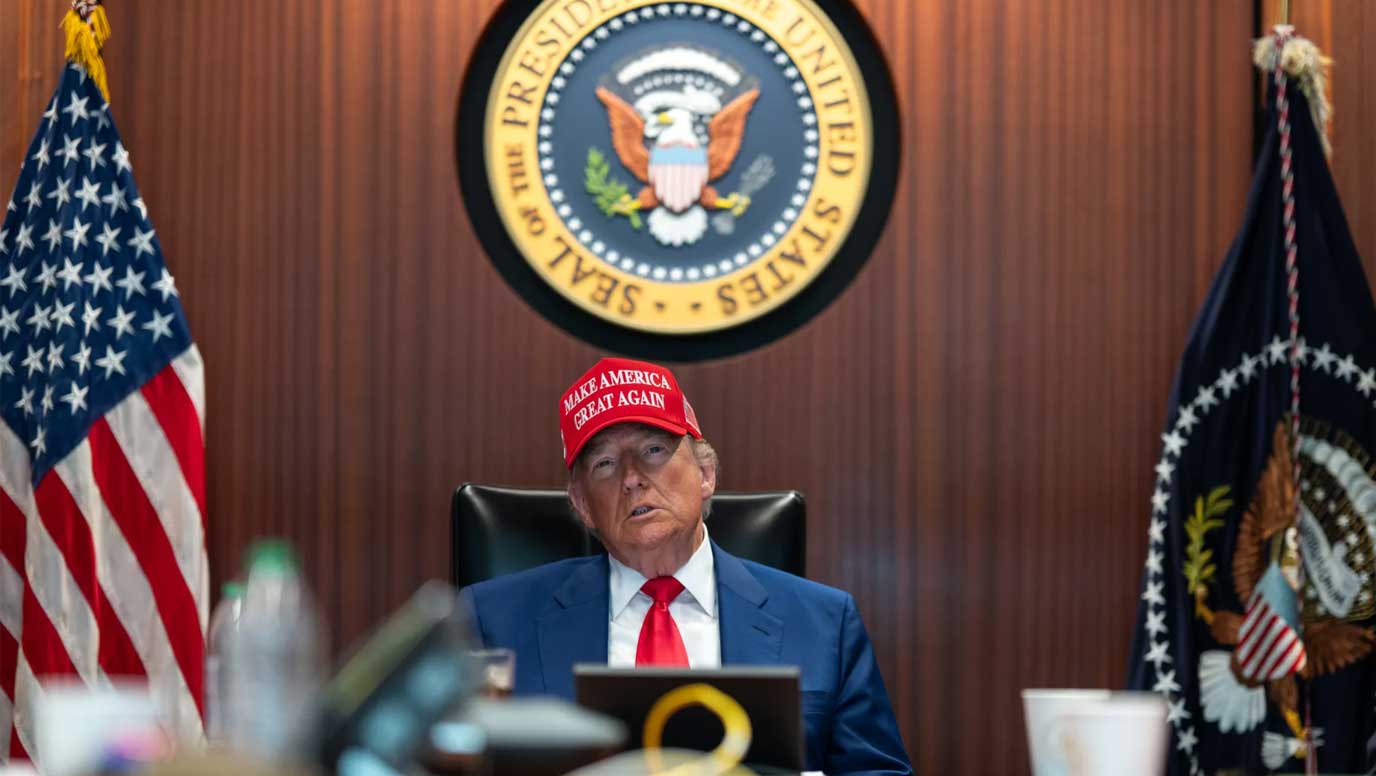Trump tells AstraZeneca: Thanks for the $50bn – now drop your prices or else!

What that penalty might be has not been articulated, nor has the means by which action could be taken.
The White House last week wrote to AstraZeneca and 16 other life science heavyweights making the threat. AstraZeneca is not commenting.
President Trump had called AZ's $50bn commitment to new facilities in the US an honour and his administration said some of the reason for the spend was due to its tariff policy.
In line with other global giants in the sector, AstraZeneca took a hit on its share price on Trump's threat. What the White House ultimatum will end up meaning for the companies' finances and the American treasury remains unclear but sources suggest the 17 companies threatened with penalties unless they slash drug prices in the States are likely to ignore the President.
Letters were sent to AbbVie, Amgen, AstraZeneca, Boehringer Ingelheim, Bristol Myers Squibb, Eli Lilly, EMD Serono, Genentech, Gilead, GSK, Johnson & Johnson, Merck, Novartis, Novo Nordisk, Pfizer, Regeneron and Sanofi.
Many have East of England drugs in development, going through trials or on the market or have collaborations with Cluster partners.
The White House missive was subtlety entitled: ENDING GLOBAL FREELOADING ON AMERICAN PHARMACEUTICAL INNOVATION and the capital letters were theirs, not ours.
The threat letter said that President Trump was taking decisive action to rebalance a system that allows pharmaceutical manufacturers to offer low prices to other wealthy nations while charging Americans significantly higher prices.
It added that, according to recent data, the prices Americans pay for brand-name drugs are more than three times the price other Organization for Economic Cooperation and Development nations pay, even after accounting for discounts manufacturers provide in the US.
The United States has less than five percent of the world’s population, yet roughly 75 per cent of global pharmaceutical profits come from American taxpayers, the White House said.
Also, drug manufacturers benefited from generous research subsidies and enormous healthcare spending by the US Government. Instead of passing that benefit through to American consumers, drug manufacturers then discounted their products abroad to gain access to foreign markets and subsidise those discounts through high prices charged in America.
Americans are subsidising drug-manufacturer profits and foreign health systems, both in development and once the drugs are sold, said the White House.
President Trump added: “In case after case, our citizens pay massively higher prices than other nations pay for the same exact pill, from the same factory, effectively subsidising socialism aboard [sic: Did he mean abroad?] with skyrocketing prices at home. So we would spend tremendous amounts of money in order to provide inexpensive drugs to another country. And when I say the price is different, you can see some examples where the price is beyond anything — four times, five times different.”
Business Weekly awaits further updates on the White House strategy and targeted companies' reaction to it and is staying close to the situation as it builds. Last week we reported that AZ chief executive Pascal Soriot had laid the foundations for massive growth and tens of thousands of jobs in the US created by the $50 billion investment in America.
The investment spree underpins US-wide creation of new – or expansion of existing – AstraZeneca R&D and manufacturing facilities the length and breadth of America.


